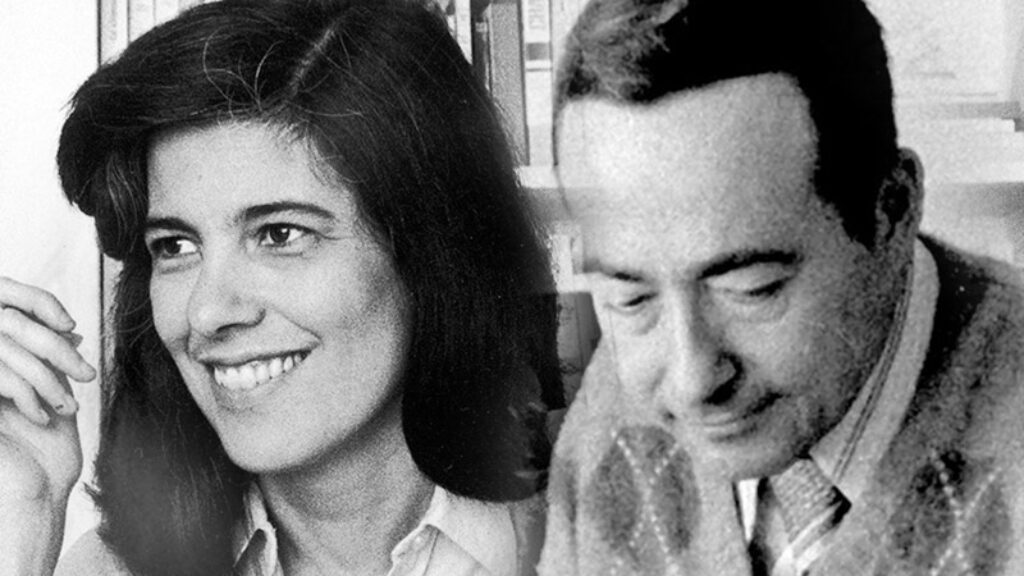Tested Loyalties
What if a national leader chooses to bring disgrace on his family rather than compromise his political beliefs? This is what happens in David Bezmozgis’ tautly written novel The Betrayers, which was recently granted the National Jewish Book Award for fiction. As in his two prior works of fiction, Natasha and The Free World, Bezmozgis concentrates on the unique struggles faced by Jews who fled what was once the Soviet Union.
The protagonist of The Betrayers is Baruch Kotler, who suffered 13 years of imprisonment in the Soviet Gulag before moving to Israel and becoming a celebrated political leader. This is Natan Sharansky’s real-life story, of course, and apparently his body, too. (In addition to having a wry sense of humor like Sharansky’s, Kotler is short, stocky, and bald.) But utterly unlike Sharansky, Baruch Kotler has both a mistress, Leora, and a blackmailer. In order to avoid allowing the latter to take control of his political life, he flees Israel. The resulting scandal not only tarnishes his public image but also pains and humiliates his wife and children. Attempting to explain his position on the phone to his outraged daughter, Kotler is unwavering:
There are matters of principle where you cannot compromise. Under any circumstances. If I’d compromised, it would have been worse. Far worse for all of us. For our country and for our family, which is part of our country.
Although this fervent dedication to the national good is also reminiscent of Sharansky, the womanizing, needless to say, is not. But by placing Baruch Kotler in this situation, Bezmozgis challenges the reader to consider what a hero might do in a similar predicament. Can one justify the betrayal of one ideal for the sake of another?
Yet Baruch Kotler is not the chief betrayer in the novel. Kotler was himself the victim of a cruel betrayal at the hands of his former friend Vladimir Tankilevich, who almost 40 years earlier had denounced him to the KGB, leading to Kotler’s incarceration in the Gulag not for being a dissident, which he was, but for working for the CIA, which he was not. In fact, most of the book’s characters are guilty of betrayal in one form or another. The Israeli government is a betrayer in the eyes of Kotler’s idealistic son Benzion because of its plan to evict Israeli settlers from their homes, while Benzion is guilty of betrayal in his father’s eyes for preparing to disobey orders. Kotler argues that no matter how much he agrees with his son’s Zionist principles: “Like it or not, our country is a democracy.”
Some of the women in the novel are also guilty of betrayal. Kotler’s young mistress Leora betrays her friendship with Kotler’s daughter by entering into an illicit affair with her father. In fact, Leora’s betrayal plays a key role in the novel; if it weren’t for her, Kotler would never have been forced to flee Israel for, of all places, Crimea, where he soon confronts his betrayer Tankilevich. Even Kotler’s devoted wife Miriam, who lobbied tirelessly to secure her husband’s release from the Gulag, is also presented as a kind of betrayer. Although she was thoroughly secular when she married Kotler, Miriam began to embrace religion so zealously during her husband’s long imprisonment (again, the borrowing from reality is obvious) that after Kotler’s release, he felt that “the woman I found wasn’t quite the woman I’d married.” Kotler’s subsequent love affair with the young (and decidedly secular) Leora becomes somewhat understandable—though never justified, even in Kotler’s own mind. One might even suggest that as an author Bezmozgis is also guilty of betrayal for modeling his protagonist so closely on the figure of Sharansky. Kotler is a vivid, believable character, but at what price do authors make such decisions? (Perhaps to soften the blow, or as a form of homage, Bezmozgis seems to have named him after the well-known human rights lawyer Irwin Cotler, who fought vigorously for Sharansky’s release.)
As Bezmozgis deftly shows, betrayal is not a simple matter. Yet the author is not suggesting that there is no such thing as evil. Indeed he portrays the Soviet system and its reliance on informers as rotten to the core. But individual responsibility is another matter, an issue around which Bezmozgis builds the climax of the novel. This takes place in the form of a fateful confrontation between Kotler and Tankilevich, his old friend turned informer. In Crimea, will Kotler finally release his anger and lash out at his friend’s treachery? Or will Tankilevich’s poor health and pathetic circumstances cause Kotler to relent? It is during this tensely charged confrontation that Kotler finally learns why Tankilevich betrayed him. Where Kotler chose principle over family, Tankilevich chose family over principle. But is one position really more moral than the other? Bezmozgis does the old-fashioned literary work of compelling the reader to confront the inevitability of tragedy in the face of such impossible choices. Tankilevich even fatuously suggests that Kotler is the lucky one:
Say what you will, but you benefited from this Gulag. You had thirteen dark years followed by how many bright ones? Without those thirteen years, where would you be? . . . Those thirteen years were your lottery ticket.
Kotler is not one to be torn apart by inner moral conflict. He states confidently that he would rather die or sacrifice a family member than be responsible for an innocent man’s suffering. His mistress Leora isn’t persuaded. Rather than admire him for his moral certainty, she reacts with coolness, as if “he’d been weighed in the balance and found wanting.” This raises the question of loyalty, which is, of course, the flip side of betrayal. If one cannot be loyal to one’s family over all others, is that unnatural, even un-Jewish? As Bezmozgis knows, this question applies to the nation as well.
Certainly as a Jewish author, Bezmozgis demonstrates his own sense of loyalty through his clear-eyed portrayal of Israel on the world stage. In Kotler, Bezmozgis shows that the Jewish return to Zion remains a noble enterprise. This is not to assume, of course, that Bezmozgis necessarily shares all of Kotler’s views on Israel and Zionism.
In his portrayal of Kotler, Bezmozgis succeeds in depicting a man of conviction whose love for his nation exceeds even his love for his family. As Leora senses, this makes him different from the ordinary person and, in some ways, unfathomable, perhaps even unlikeable. (Does he deserve his wife Miriam’s tender forgiveness?) Ironically, this is also part of his greatness, since it is only the rare individual who is willing to put the public good above the needs of his own loved ones. Yet as the reader learns right from the beginning, Kotler is not a saint. He is, after all, a human being who (like the biblical king David recalled in the final words of the novel) is prone to sin. But Kotler’s heroism, though dimmed, is not really diminished by human error, as his final act in this thought-provoking novel subtly demonstrates.
Suggested Reading

Bellow, His Biographers, and the “Quivering Schmucks”
Many authors have passionate readers, but few have drawn as many self-consciously nutty fans as Saul Bellow.
Awe and Joy
S. Y. Agnon curated a stunning anthology of Jewish texts, published later in English as Days of Awe. In his introduction to the anthology, the eminent scholar Judah Goldin grappled with the idea of awe—and so does this author.
Israel’s Arab Sholem Aleichem
Sayed Kashua's new novel presents a characteristic depiction of the dual identities of Israel's Arabs.

Ruthless Cosmopolitans
Susan Sontag kept saying hello to George Steiner, louder and louder, as he stared out the bus window refusing to answer. More or less standard behavior for both of them . . .

Comments
You must log in to comment Log In